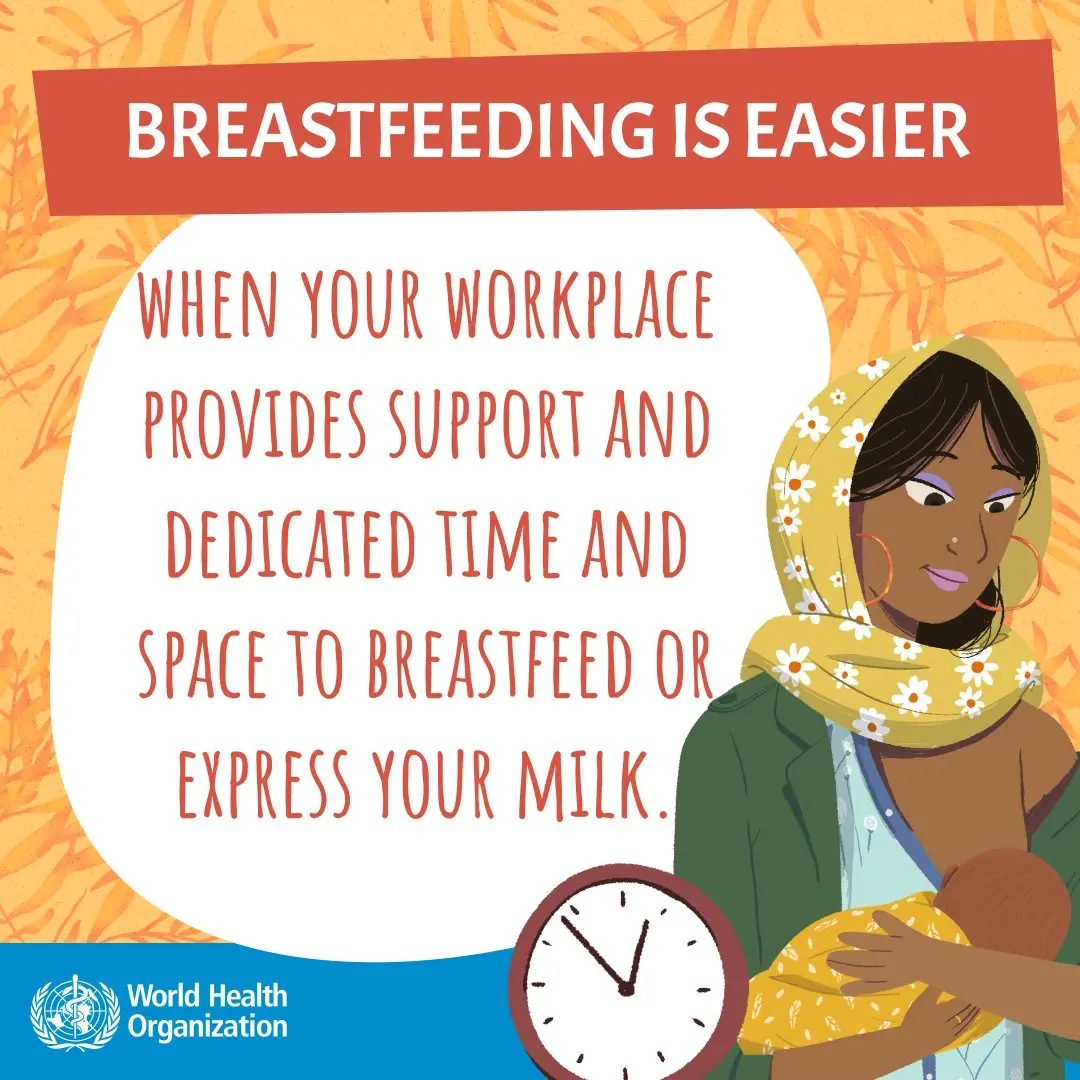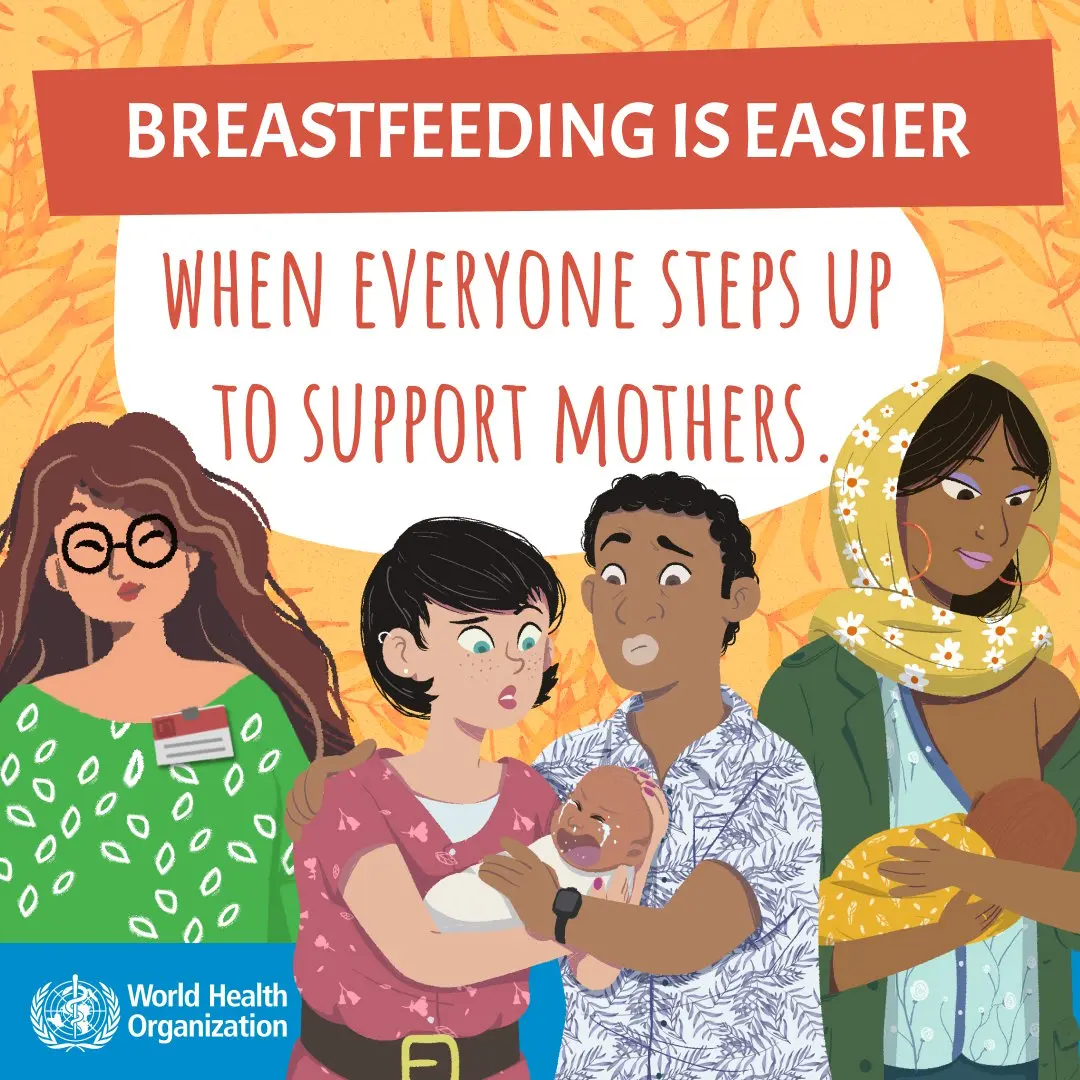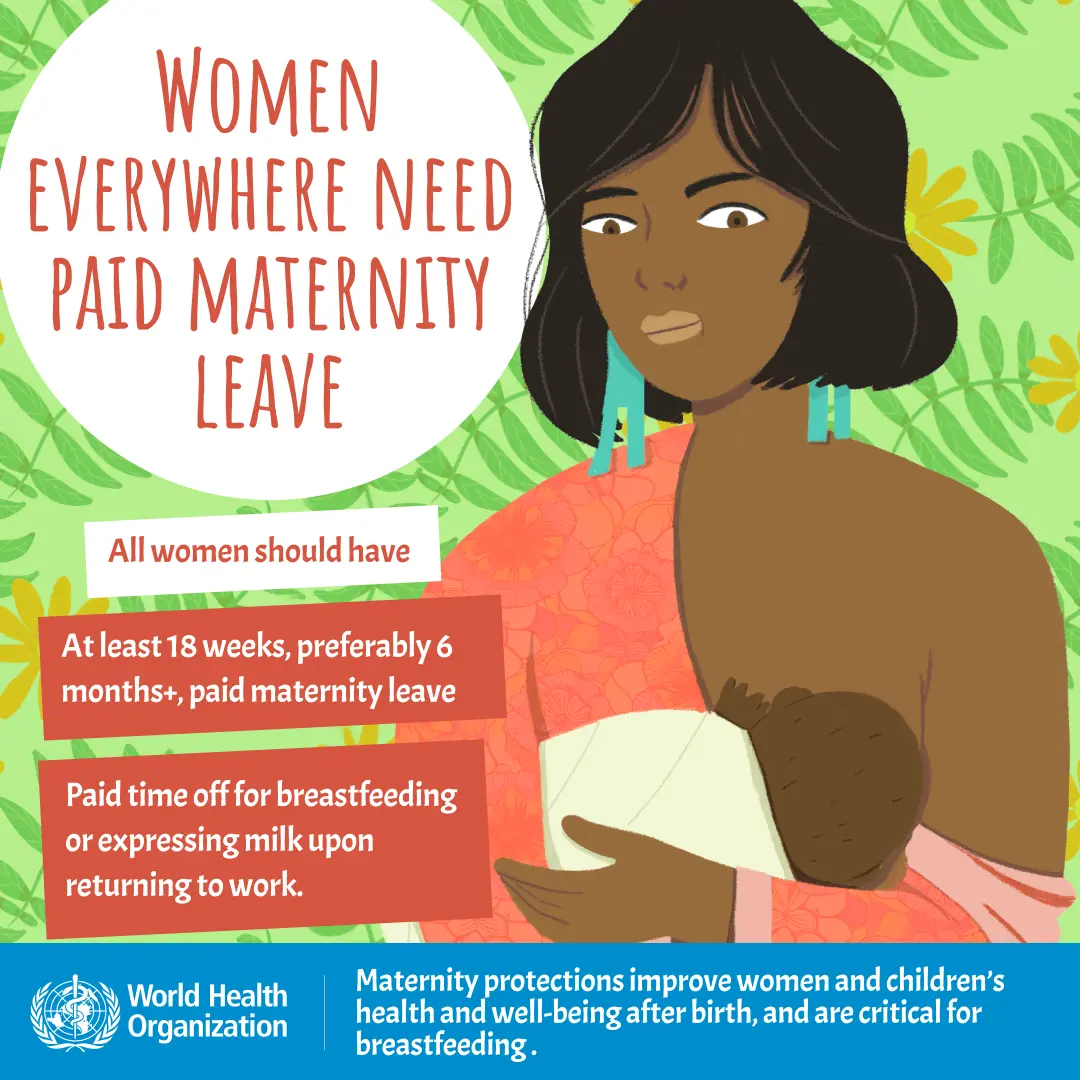
World Breastfeeding Week is an annual celebration which is held every year from 1 to 7 August in more than 120 countries. This event is supported by the World Health Organisation, UNICEF and many Ministries of Health and civil society partners.
Introduction:
Breastfeeding, an age-old practice of nourishing infants with the nurturing essence of mother’s milk, transcends mere biology to embody a sacred bond that resonates through generations. Often coined as “liquid gold,” breastmilk bestows a bounty of vital nutrients, antibodies, and growth factors, nurturing optimal growth and fortifying infants’ immune defenses. Beyond its physiological marvels, breastfeeding weaves an emotional tapestry, forging an indomitable connection between mother and child, a profound testament to the power of love and care.
Embracing Breastfeeding: A Biblical, Quran and Tanakh Perspective
The Bible, a revered spiritual text, holds numerous references to the nurturing act of breastfeeding. Psalm 22:9 proclaims, “Yet you brought me out of the womb; you made me trust in you, even at my mother’s breast.” In these words, we witness the divine acknowledgement of the significance of a mother’s breast as a source of sustenance and security for the newborn. The Bible’s emphasis on nurturing and caring for children underscores the spiritual significance of breastfeeding as an act of love and responsibility.
In the Islamic faith, the Quran also emphasizes the significance of breastfeeding as a divine act of nourishment and care. Surah Al-Baqarah 2:233 states, “Mothers shall breastfeed their children for two whole years, for those who desire to complete the term.” This Quranic verse highlights the importance of breastfeeding for the optimal physical and emotional development of the child, encouraging mothers to provide this essential source of sustenance for the prescribed period.
Likewise, in the Jewish Tanakh, we find a parallel emphasis on the role of breastfeeding in nurturing and protecting the child. In Isaiah 49:15, it is written, “Can a woman forget her nursing child, that she should have no compassion on the son of her womb? Even these may forget, yet I will not forget you.” This powerful verse affirms the profound bond between a mother and her nursing child, symbolizing the unyielding love and care that breastfeeding fosters, reflecting the sacred responsibility of parents to nourish and support their offspring.
Across these three sacred texts – the Bible, the Quran, and the Hebrew Bible – we witness a common thread that extols the value of breastfeeding as a divine act of love, care, and responsibility. The spiritual significance attributed to this nurturing practice underscores the collective responsibility of society to protect, support, and promote breastfeeding, ensuring the well-being and flourishing of future generations.
Barriers to Breastfeeding:
Despite the substantial evidence and spiritual verses supporting breastfeeding, several barriers hinder its widespread adoption. Many women lack comprehensive knowledge about the specific benefits of breastfeeding and the risks associated with not breastfeeding. The influence of formula marketing and bottle feeding as a social norm further exacerbates the declining rates of breastfeeding. Poor family and social support can also be significant barriers to breastfeeding. Negative attitudes from family and friends can discourage women from seeking help and information about breastfeeding. Additionally, societal embarrassment and lack of acceptance for breastfeeding in public spaces hinder mothers from comfortably breastfeeding their babies outside their homes. The challenges presented by employment and child care are also major barriers for working mothers who wish to breastfeed. Inflexible work hours, inadequate privacy for breastfeeding or expressing milk, and limited access to child care facilities near the workplace make it challenging for women to continue breastfeeding after returning to work.

Unveiling the Profound Health Benefits of Breastfeeding: Insights from Empirical Data
According to the research conducted by Pathirana, M.M., Andraweera, P.H., Aldridge, E. et al., it has been observed that breastfed children exhibit enhanced performance on intelligence tests and are less prone to being overweight or obese, thereby reducing the risk of diabetes later in life. Additionally, women who breastfeed experience a reduced likelihood of developing breast and ovarian cancers. Notably, a study involving women aged 40–65 years revealed that breastfeeding for a minimum of 5 months was associated with a remarkable 50% reduction in the risk of coronary artery disease, although this was partly influenced by traditional risk factors. Moreover, the research findings demonstrated that not breastfeeding was linked to an increased risk of developing hypertension over 20 years postpartum. Furthermore, among women who faced at least one pregnancy complication, those who breastfed for a duration of at least six months exhibited lower peripheral and central blood pressures compared to those who did not breastfeed for the same period. Additionally, the study highlighted that women who breastfed for at least six months had reduced serum triglycerides and increased HDL-C levels at the three-year postpartum mark. These outcomes underscore the profound and far-reaching health benefits of breastfeeding for both mothers and their children.
Promoting Breastfeeding: A Global Endeavour
Recognizing the vital role of breastfeeding in child health and development, the World Health Organization (WHO) actively promotes breastfeeding as the best source of nourishment for infants and young children. WHO and UNICEF recommend initiating breastfeeding within the first hour of birth and exclusive breastfeeding for the first six months of life. Continuing breastfeeding alongside complementary foods up to two years or beyond is encouraged.
In the modern world, as we strive to create a healthier and more compassionate society, promoting and protecting breastfeeding becomes a collective responsibility. Every individual, community, and institution has a vital role to play in supporting breastfeeding mothers and ensuring that breastfeeding is not just an option but the norm.
The Role of Healthcare Professionals
Healthcare professionals stand as guardians of health, entrusted with the care and well-being of both mother and child. They bear the responsibility of empowering expectant and new mothers with comprehensive knowledge about breastfeeding’s benefits, addressing any doubts or misconceptions that may arise. Through prenatal and postnatal counseling, they can play a pivotal role in building the confidence of mothers to embrace breastfeeding and overcome any challenges they may face.
Employers and Workplace Policies:
Employers have a unique opportunity to create a breastfeeding-friendly work environment. Family-friendly workplace policies, such as flexible working hours, lactation rooms, and support for expressing milk, demonstrate a commitment to the well-being of both the employee and their child. By supporting working mothers in their breastfeeding journey, employers contribute to healthier families and a more productive workforce.

Community Support:
Communities, too, have a role to play in fostering a culture of breastfeeding. Establishing peer support groups and promoting positive narratives around breastfeeding can dispel social stigma and normalize breastfeeding in public spaces. When mothers feel supported and encouraged by their communities, they are more likely to continue breastfeeding, contributing to improved health outcomes for their children.
The Power of Education:
Education forms the bedrock of change. Schools and educational institutions can play a part in creating awareness about the importance of breastfeeding among young adults. Teaching children about the benefits of breastfeeding fosters a culture of respect and understanding for the practice, setting the stage for future generations to embrace it wholeheartedly.
Government and Policy Support:
Governments have a critical role in formulating and implementing policies that protect, support, and promote breastfeeding. This includes advocating for paid maternity leave, implementing the International Code of Marketing of Breast-milk Substitutes to prevent aggressive formula marketing, and investing in lactation support programs. Governments must recognize breastfeeding as a fundamental human right and commit to creating an enabling environment for mothers to breastfeed.
On this World Breastfeeding Week, 1-7 August 2023, as the world witnesses the mothers tireless devotion, let us pause and bow in reverence, for their unwavering commitment to the art of motherhood is the very foundation upon which humanity thrives. In gratitude and recognition, we honour the boundless love the mothers bestow, for it is through their tender care that we find the courage to embrace a future teeming with hope and possibility.
When breastfeeding doesn’t work out
The latest research shows that 9 out of 10 women start out by breastfeeding their babies. Most women want to breastfeed. Unfortunately, despite our wishes, hopes and efforts, sometimes breastfeeding doesn’t work out.
Many mothers feel a deep sense of loss when they are unable to breastfeed, either at all or for as long as they had planned. This is natural. It is normal to feel sad, and to feel some grief and remorse. It is important to allow yourself to feel these emotions. You may not be satisfied with your experience and things may not have gone as planned. Even if your child breastfed for just one day, this is a precious gift and something to be proud of.
Whether you’re physically unable to make enough breastmilk for your baby or your baby has significant difficulty latching, feeling unable to satisfy your baby with each breastfeed is a demoralising challenge that becomes all-consuming and may necessitate your decision to supplement with formula. This does not make you a failure. It makes you a mum who’s brave enough to make some tough calls when you really didn’t want to.
Breastfeeding is a gift bestowed upon humanity, a testament to the miracle of life and the bond between mother and child. As we journey through the ages, cherishing the sacredness of breastfeeding remains an inherent part of our responsibility as individuals, communities, and societies. Drawing inspiration from the teachings of the Bible, the Tanach and the Qu’ran, we understand that breastfeeding is not just a biological act; it is an act of love, compassion, and nurturing.

© saieditor.com
![]()

